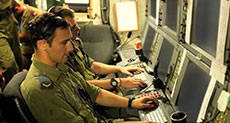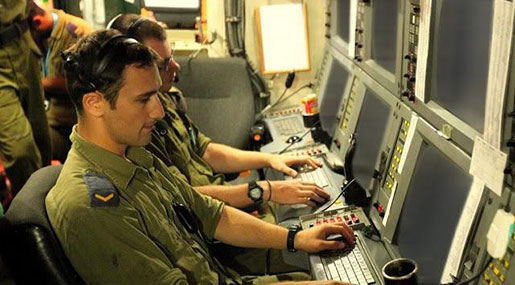
What You Don’t Know About ’Israel’ and Social Networks!

Local Editor

1. Focus of "Israeli" President Shimon Peres on social networks
The approach of the Zionist administration towards social media mirrors that of Washington. During the seventh session of the World Economic Forum on the Middle East and North Africa, which took place in Jordan, "Israeli" President Shimon Peres was quoted as saying that, "soft power through the Internet and social networks is important to reach the public.
The development, which occurred in the minds of Arab youths, led to the Arab spring. Technology has no limits, and Arab armies cannot control technology, and the Arab police cannot arrest the spirit of innovation. Globalization goes beyond the boundaries of isolation and does not agree with it. All these facts determine the major reasons for the change in the region. Informatics and the cosmic link via the Internet and the unlimited communication between civilizations are regarded as the keys of change in the [sphere] of soft power."
That is how the spokesman for the "Israeli" Occupation Avichay Adraee garnered thousands of admirers on his social media page. And that is why the page of the Israeli Embassy in Jordan garnered nearly twenty thousand Arab admirers. So what is the secret behind this? And why do child killers suddenly turn into celebrities? Is this the concept of the shielded and the desirable? Or is there a hidden force pulling a thin thread and attracting thousands of people?
The "Israeli" intelligence had developed a specialized unit for online warfare and information technology, which was revealed in 2011. ‘The French Tribune' newspaper reported that "Israeli" intelligence officer Adon Wardan, also known in the intelligence arena as Daniel de Mello, launched the "Free Youth" site which attracted more than 10 million visitors from Arab and Islamic countries since its launch in 2003.
2. Employing the "Israeli" intelligence unit for social networks
Several "Israeli" reports noted the importance of focusing on studies concerning social networking sites in Lebanese cities. One such study used the city of Sidon as a model, discussing ways to influence people's opinion on current events. Such information is of long-term strategic importance for "Israel". In order to figure out what will happen, there is a need for information from open sources and social networks. That is why the "Israeli" intelligence will resort to recruiting officers experienced in the field of sociology, mass psychology, and anthropology.
According to one of the reports, the research unit in the ["Israeli"] Intelligence Division began assembling a new research system led by one of the current prominent officers, Brigadier General Itai Baron. It was concluded that because the intelligence division is at the forefront of monitoring regional Arab vibrations, it had to understand the prevailing political leanings among the Arab public.
And the unit, which was able to predict the electoral victory of Iranian president [Sheikh] Hassan Rouhani, won "this year's head of the division" award, as opposed to other intelligence agencies which predicted that Iran is on the verge of an ‘Arab Spring', recommending the encouragement of external interference.
The intelligence unit's findings were based on gathering information on the Iranian society and analyzing it through understanding the debates on the Iranian street and focusing on the concerns of the ordinary citizen. The division considered that the Iranian citizen was ashamed of the previous leadership. Public research has shown that the Iranians do not wish to appear to the world as North Korea, viewing themselves as a superpower with a different cultural depth.
Thus, the predictions of the Intelligence Division led to the recognition that the inherent change in the elections is not a formality, and that there is a chance to carve out a new path. Fishman noted that this estimate is probably what prevented the "Israeli" leadership from embarking on several unbalanced problematic steps. In each case, the changes in the Arab public's behavior led to regulatory changes in the Military Intelligence Division. Each intelligence arena, whether Iranian or Egyptian or Palestinian or regional has cells operating in the so-called "mass intelligence", where each cell is working with the target audience.
Several years ago, a research center to study public behavior was created within the unit. The center was chaired by, Major Mittal, a professor in sociology. She worked as a former researcher in the Department of behavioral science. Her job and the job of the center was to direct intelligence officers in analyzing opinion polls and orientation in social networks as well as ways of reading the public debates.
A center known as "Sing" was established in the public behavior unit which is affiliated to the central unit for gathering intelligence information known as "unit 8200" - a unit responsible for gathering information and researching.
The unit includes dozens of researchers who monitor and analyze public information in the Arab world. Officers of "Unit 8200" try to obtain information about the mood of influential groups, for example in the Lebanese city of Sidon, and its impact on Hezbollah's position in Lebanon. The use of old methods such as the means of secret intelligence might be required to achieve this end.
Major Moshe, a professor in Middle Eastern history, who grew up in the intelligence world, heads the public behavior unit. To view the size of the material monitored by the unit, it should be taken into consideration that in Egypt alone Internet sites largely increased after the fall of presidents Housni Mubarak and Mohammad Morsi. There are also 55 institutional newspapers, and thousands of independent and local newspapers, 53 TV channels, 15 satellites, and dozens of radio stations, all of which deal with the Egyptian arena.
When monitoring what is happening in the Egyptian arena, there was interest in the mood of the Bedouins in the Sinai, by monitoring their activities on social networks. In the Sinai, there are also well-developed networks, including cellular and computer with the flow of huge amounts of information. The important thing is what was analyzed and the experience accumulated. And even in the eighties, the legendary Albert Saudaa was in charge of analyzing the political mood in Egypt.
Saudaa was an expert in the affairs of Mohammed Hassanein Heikal. Saudaa used to analyze, for the "Israeli" intelligence, every article Heikal wrote. He believed that what Heikal wrote was what President Gamal Abdel Nasser was thinking. The situation was the same with the Iraqi arena, where Ilan Cohen monitored the mouthpieces of the Iraqi regime.
The first Intifada in Palestine forced the "Israeli" entity to begin monitoring the mood of the Arab street, when the trade unions' and student unions' positions reflected the position of the factions. The "Shin Bet" at the time contained a small unit to study the Palestinian community in the West Bank and the Gaza Strip, which has become a full circle today. The researchers in this unit try to test the waters in the street, concluding that since 2012 until now, there is no danger of a third intifada breaking out.
In addition, the "Israeli" intelligence became very interested in the economic processes of the Arab and Iranian societies and organizations. The summary of a summit held by the "Israeli" intelligence services a few years ago, concluded that in order to understand the impact of the economy on politics, it is important to study the "shadow economy" in the Arab world, such as Hizbullah's economy in Lebanon, the economy of the Revolutionary Guards in Iran, and the army in Egypt. After the formation of a special unit in this filed, the amount of research on Arab companies increased fourfold. One of the studies even predicted that the army will overthrow President Mohamed Morsi months before it happened. Other researches focused on the middle class in the Middle East and the position of Iranian society towards agreements with the West.
Fishman concludes that in spite of all of its previous work, the "Israeli" public intelligence system is still in its infancy, lacking a clear combat doctrine in "Israel". The only sure thing is that the unit's estimates, which are not based on the analysis of public information, remain only partially accurate, and at times even wrong.
Commenting on the above, it is certain to us that the intelligence services of the Zionist entity give more importance to information gathered through monitoring social networks. This highlights the importance of making young people aware of the seriousness and sensitivity of the social networks and the way in which they provide the Zionist enemy with the necessary data to understand our communities, facilitating their preparations plans. Thus innovating and developing the necessary mechanisms should be set-up to help in anti- programming and protecting our society's security, cultural, and political systems from being penetrated and manipulated.
Source: Softwar center, Translated by website team
Comments



